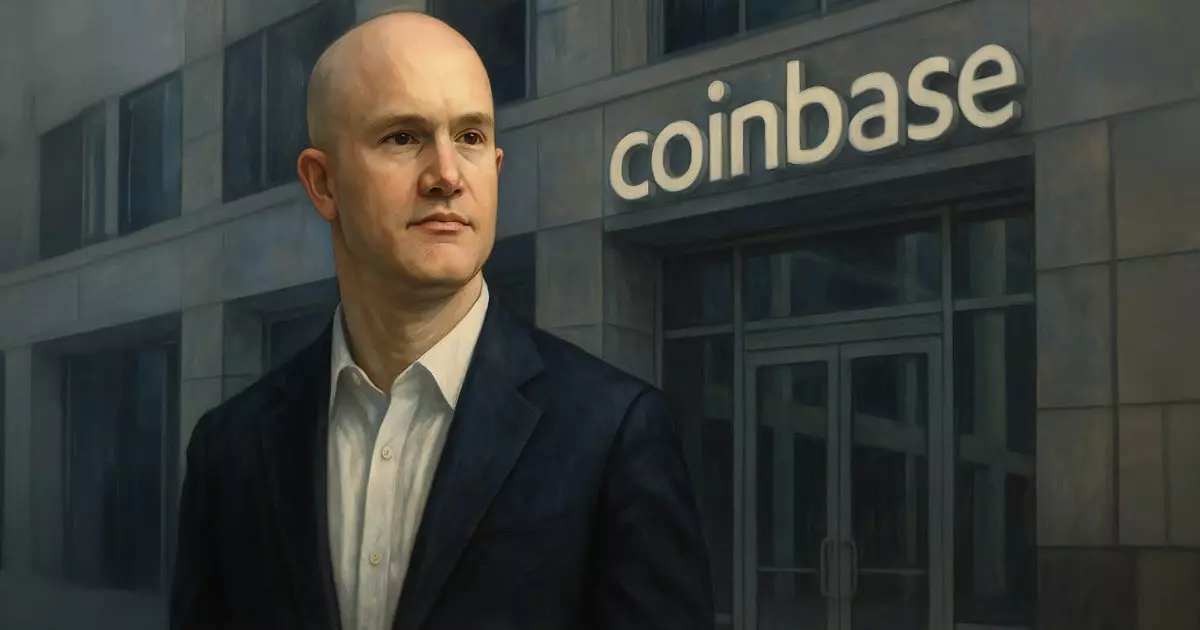Coinbase CEO Brian Armstrong’s recent call to employees of the Department of Government Efficiency (DOGE) is much more than a simple recruitment effort; it symbolizes a pivotal shift in the future of financial systems. By encouraging these public servants to consider roles at a cryptocurrency powerhouse after their tenure, Armstrong is essentially seeking to harness the disruptive spirit that has characterized DOGE since its inception in 2025. Can we dismiss this as mere marketing, or is it a genuine strategy to infuse government-educated talent into the private sector?
The Legacy of Government Innovation
The DOGE initiative, introduced under President Donald Trump, aimed to streamline government operations amidst a barrage of inefficiencies. Elon Musk’s leadership of this department has garnered both admiration and skepticism, yet its focus on cost-cutting and innovative management has been undeniably impactful. Hiring these individuals means potentially adopting a culture that thrives on innovation and effectiveness—qualities that have often been absent in traditional financial institutions. Armstrong’s invitation could signal Coinbase’s ambition to lead a new wave of financial efficiency.
A New Frontier for Crypto Adoption
Armstrong’s outreach coincides with Coinbase’s historic induction into the S&P 500 index, a monumental achievement for any cryptocurrency exchange. This not only enhances the legitimacy of digital assets but also places Coinbase at the forefront of mainstream finance. By attracting employees who have firsthand experience in government operations, Coinbase can better navigate regulatory landscapes, transforming potential obstacles into opportunities for strategic advantage.
Talent Transformation: A Culture Clash?
While the contemplation of DOGE employees entering the crypto space brings excitement, it also raises questions about the integration of such talent into the fast-paced fintech environment. Government roles often embody bureaucratic structures that may clash with the agile work culture prevalent in startups like Coinbase. The challenge will be ensuring that these individuals adapt to a space where innovation is encouraged, and traditional ways of thinking are challenged. Armstrong’s invitation, then, must be viewed not just as a recruitment strategy but as a deliberate act of cultural transformation.
Shifting Dynamics in Public Perception
Ethan Shaotran, a young DOGE employee who famously left Harvard to join the initiative, has become emblematic of the struggles faced by public servants in cutting-edge roles. His experience has been shared widely, and Armstrong’s invitation serves as a counter-narrative, suggesting that working in government can lead to exciting opportunities within the private sector. This shift in public perception is crucial; it paves the way for more professionals to embrace roles that challenge conventional norms, potentially leading to an era where public service and private innovation are inextricably linked.
Armstrong’s Vision: A Financial Revolution
Ultimately, Armstrong’s endeavors point toward an exhilarating vision for the future of finance—a sector where efficiency reigns, and innovation is the baseline expectation. Inviting DOGE personnel is not merely an operational decision; it embodies a vision of revolutionizing how both government and private entities operate. As Coinbase charts its course in the crypto sea, inviting in those seasoned in government innovation ports a message of hope—a signal that change is both inevitable and necessary.
Coinbase’s strategy to integrate former DOGE employees highlights a growing trend in the finance industry: the blurring lines between public service and private enterprise. Here, the inclination toward efficiency, modernization, and radical transformation lays the groundwork for a financial epoch that could redefine the very fabric of our economic systems.

